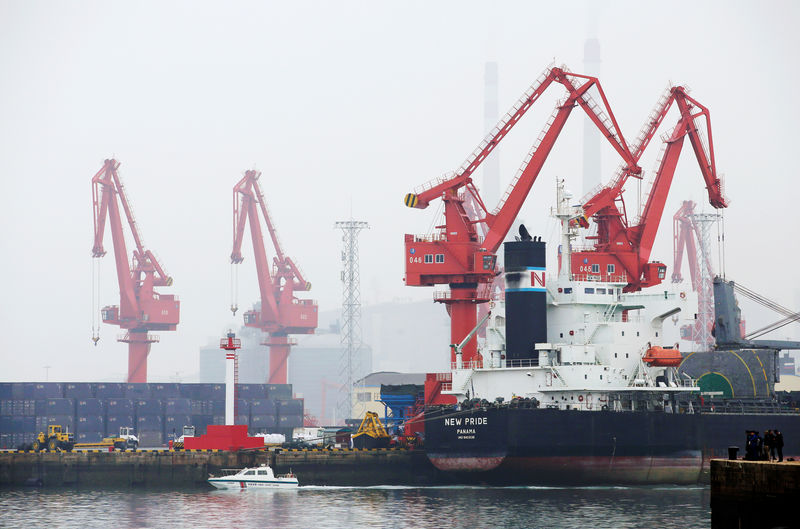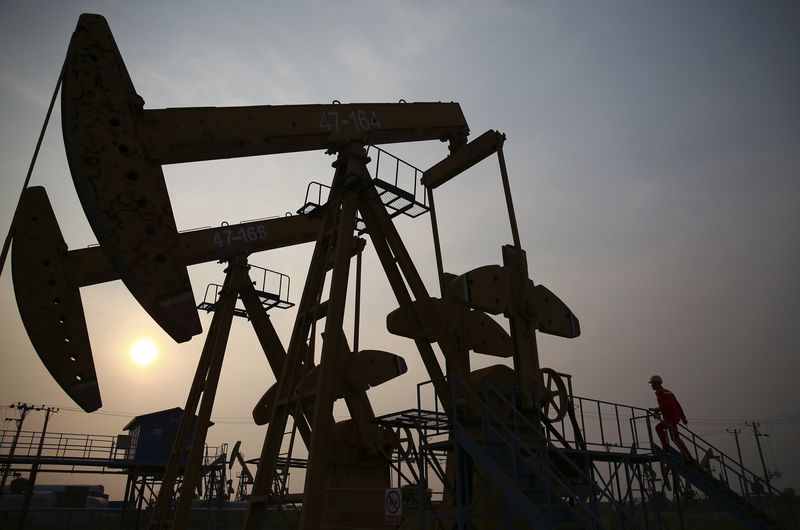By Henning Gloystein
SINGAPORE (Reuters) - Brent crude oil prices rose above $70 per barrel on Tuesday as supply cuts led by producer club OPEC and U.S. sanctions on fuel exports from Iran and Venezuela outweighed concerns about an economic slowdown.
Front-month Brent crude futures, the international benchmark for oil prices, were at $70.24 at 0602 GMT, up 13 cents, or 0.2%, from the last session's close, when they rose 2.1%.
U.S. West Texas Intermediate (WTI) crude futures were at $59.26 per barrel, up 63 cents, or 1.1%, from their last close on Friday. WTI did not trade on Monday due to a U.S. public holiday.
Prices have been supported by supply cuts led by the Organization of the Petroleum Exporting Countries (OPEC) since the start of the year, and by political tensions in the Middle East.
OPEC and some allies including Russia are due to meet on June 25 and 26 to discuss output policy.
"(Output cuts and) geopolitical turmoil across the Middle East ... are likely to encourage financial investors to realign with their bullish physical counterparties," said U.S. bank Citi.
In physical oil markets, Middle East crude premiums hit their highest levels in years earlier this month amid falling supply.
Beyond the OPEC cuts, U.S. sanctions on petroleum exports from Iran and Venezuela have tightened markets.
"Iran exports remain under pressure as U.S. sanctions bite. This comes as OPEC appears to be heading towards extending the current production cut agreement," Citi added.
Trump last year withdrew the United States from a 2015 international nuclear deal with Iran, and Washington is ratcheting up sanctions seeking to end Tehran's international sales of crude oil and strangle its economy.
Washington has also imposed sanctions on Venezuela's oil exports, in a bid to topple the government under President Nicolas Maduro there.
Despite this, markets remain cautious amid an economic slowdown as a result of the ongoing trade war between the United States and China, which is also expected to dent fuel consumption.

Jeffrey Halley, senior market analyst at futures brokerage OANDA said the trade frictions meant "oil's recovery is fragile".
